| |
Inviting Nominations for IEEE CIS Awards before 30 April, 2022
The IEEE Computational Intelligence Society annually recognizes significant contributions and meritorious service in the field of computational intelligence. Nominations are highly encouraged to recognize our volunteers and eminent colleagues to keep our Society alive and to promote research excellence in computational intelligence. The IEEE Computational Intelligence Society sponsors several annual Awards. Please see the awards and nomination details on the IEEE CIS Awards page. The IEEE CIS Awards have a deadline of 30 April (strict deadline).
|
| |
|
| |
A Note from the Industrial and Governmental Activities Committee (I&GAC)
I am extending an invitation to all CIS members who share an interest in CI applications to join the CIS Industrial and Governmental Activities Committee (I&GAC), our newly-formed committee. You can find more details describing I&GAC’s vision by reading the February 2022 issue of the CI Magazine (pages 5-7).
Within I&GAC, we formed a committee devoted to Industrial Applications (IAC), chaired by Catherine Huang, with Simon See and Tingwen Huang as co-chairs. This committee contains a Task Force on Industrial AI, led by Alessandro Liani. We are currently developing three more Task Forces on Governmental Activities, Social Implications of AI, and AI in Transportation and Aerospace.
I&GAC is already organizing several activities, including two CIS-wide webinars, a panel at the WCCI 2022 Industry Day, and the IEEE Conference on AI in 2023.
If you are interested in joining us, please contact me at [email protected].
Piero P. Bonissone, I&GAC Vice President.
|
| |
|
| |
CALL FOR NOMINATIONS FOR VARIOUS OFFICER AND ADCOM MEMBERS AT LARGE POSITIONS
The IEEE Computational Intelligence Society (CIS) is seeking nominations for the following key leadership positions (terms are in parentheses):
President-Elect (2023)
Vice President for Education (2023-2024)
Vice President for Member Activities (2023-2024)
Vice President for Publications (2023-2024)
Five ADCOM Members-at-Large (2023-2025)
According to the CIS Bylaws, ARTICLE XII– GOVERNANCE AND ADMINISTRATION,
Section 35 Schedule for ADCOM Elections:
"Five ADCOM Members-at-Large are elected each year, plus any vacated positions."
"The election of President-Elect, Vice President for Education, Vice President for Member Activities, and Vice President for Publications shall take place in even-numbered years."
Eligibility requirements are defined in the CIS Bylaws, ARTICLE XIV – NOMINATIONS, ELECTIONS AND APPOINTMENTS.
The nomination will close on 15 May 2022.
For more information on eligibility, submission requirements, and deadlines please visit our website for the official call for nominations.
Bernadette Bouchon-Meunier, Chair
CIS Nominations Committee
|
| |
|
| |
Proposal Deadlines for IEEE SSCI 2024 and IEEE CAI 2024
As noted previously the hard deadline for proposals for IEEE SSCI 2024 and IEEE CAI 2024 is 15 May 2022. These are two larger financially-sponsored events that will happen in 2024.
However, there are many other conferences that IEEE CIS maintains via financial sponsorship or financial co-sponsorship. These include the:
-
2024 IEEE Conference on Games (IEEE CoG 2024) associated with the Games Technical Committee
-
2024 IEEE Conference on CI in Bioinformatics and Computational Biology (IEEE CIBCB 2024) associated with the Bioinformatics and Bioengineering Technical Committee
-
2024 IEEE Symposium on CI in Financial Engineering and Economics (IEEE CIFEr 2024) associated with the Computational Finance and Economics Technical Committee
-
2024 IEEE Latin American Conference on Computational Intelligence (IEEE LA-CCI 2024) associated with the Task Force on Computational Intelligence in Latin America
-
2024 IEEE Smart World Conference (IEEE SWC 2024) associated with the Smart World Technical Committee
-
2024 IEEE International Conference on Development and Learning (IEEE ICDL 2024) associated with the Cognitive and Developmental Systems Technical Committee
-
2024 IEEE International Conference on Data Science and Advanced Analytics (IEEE DSAA 2024) associated with the Data Mining and Big Data Analytics Technical Committee
-
2024 IEEE Evolving and Adaptive Intelligent Systems Conference (IEEE EAIS 2024) a co-sponsored event with IEEE Systems, Man, and Cybernetics Society and associated with the Adaptive and Evolving Fuzzy Systems Task Force of the Fuzzy Systems Technical Committee
-
2024 IEEE Conference on CI and Virtual Environments for Measurement Systems and Applications (IEEE CIVEMSA 2024), a co-sponsored event with IEEE Instrumentation and Measurement Society and associated with the CIVEMSA Steering Committee.
Chairing a conference is a great way of helping the community, building a network, and getting involved with IEEE CIS. Proposals for these two conferences should be submitted by 30 August 2022 (hard deadline) to provide sufficient time for review and decision by IEEE CIS Confcom and Adcom. This also helps the society maintain its required two year horizon for approved conferences. Please inform VP Conferences Marley Vellasco ([email protected]) and Gary Fogel ([email protected]) as Chair of the Confcom Subcommittee on Future Conferences of your intention to provide a proposal or if you would like further information. The process for generating such a proposal can be found on our website.
We look forward to receiving your proposals and appreciate your support and effort on behalf of our conferences.
|
| |
|
| |
AutoFac: The Perpetual Robot Machine
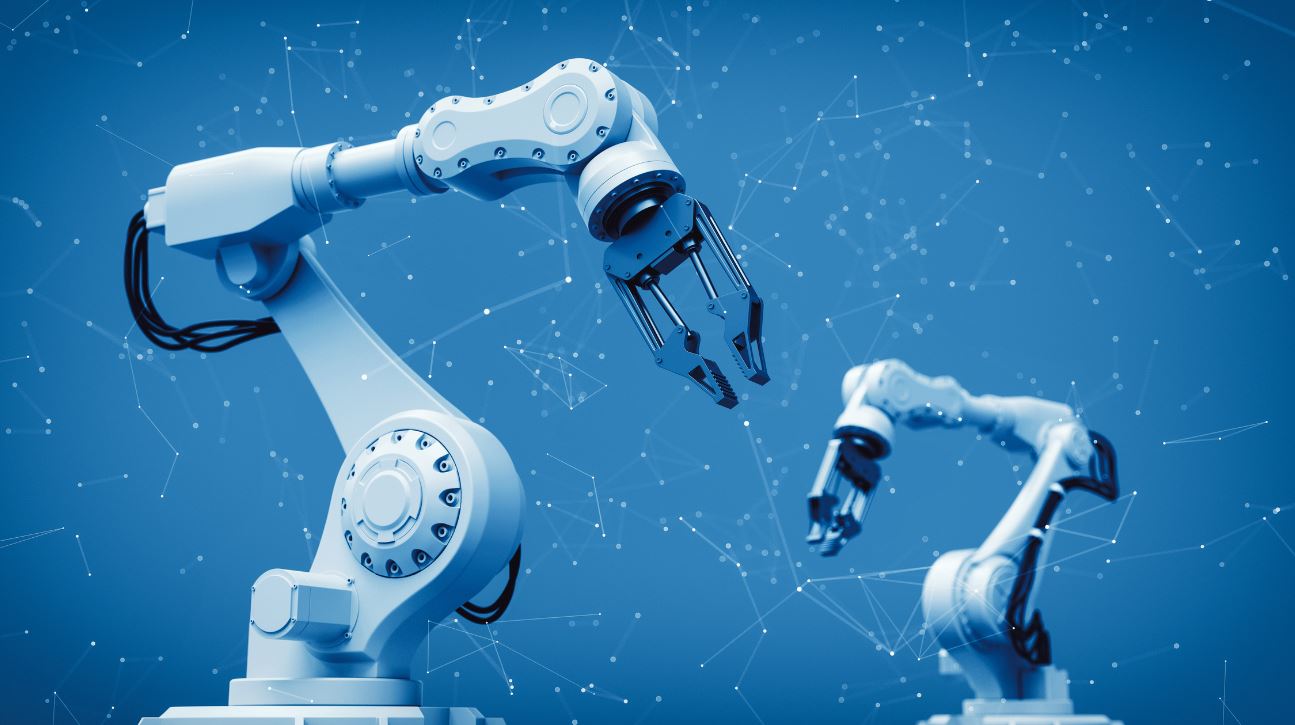 Robotics currently lacks fully autonomous capabilities, especially where task knowledge is incomplete and optimal robotic solutions cannot be pre-engineered. The intersection of evolutionary robotics , artificial life , and embodied artificial intelligence presents a promising paradigm for generating multitask problem-solvers suitable for adapting over extended periods in unexplored, remote, and hazardous environments. To address the automation of evolving robotic systems, we propose fully autonomous embodied artificial-life factories and laboratories, situated in various environments as multitask problem solvers. Such integrated factories and laboratories would be adaptive solution designers, producing fit-for-purpose physical robots with accelerated artificial evolution that experiment to continually discover new tasks. Such tasks would be stepping-stones toward accomplishing given mission objectives over extended periods (days to decades). Rather than being purely speculative, prerequisite technologies to realize such factories have been experimentally demonstrated. Currently, vast scientific and enterprise opportunities await in applications such as asteroid mining, terraforming, space, and deep-sea exploration, though no suitable solution exists. The proposed embodied artificial-life factories and laboratories, termed AutoFac , use robot production equipment run by artificial evolution controllers to collect and synthesize environmental information (from robotic sensory systems). Read More Robotics currently lacks fully autonomous capabilities, especially where task knowledge is incomplete and optimal robotic solutions cannot be pre-engineered. The intersection of evolutionary robotics , artificial life , and embodied artificial intelligence presents a promising paradigm for generating multitask problem-solvers suitable for adapting over extended periods in unexplored, remote, and hazardous environments. To address the automation of evolving robotic systems, we propose fully autonomous embodied artificial-life factories and laboratories, situated in various environments as multitask problem solvers. Such integrated factories and laboratories would be adaptive solution designers, producing fit-for-purpose physical robots with accelerated artificial evolution that experiment to continually discover new tasks. Such tasks would be stepping-stones toward accomplishing given mission objectives over extended periods (days to decades). Rather than being purely speculative, prerequisite technologies to realize such factories have been experimentally demonstrated. Currently, vast scientific and enterprise opportunities await in applications such as asteroid mining, terraforming, space, and deep-sea exploration, though no suitable solution exists. The proposed embodied artificial-life factories and laboratories, termed AutoFac , use robot production equipment run by artificial evolution controllers to collect and synthesize environmental information (from robotic sensory systems). Read More
IEEE Transactions on Artificial Intelligence, February 2022
|
| |
|
| |
Bridging the Gap Between AI and Explainability in the GDPR: Towards Trustworthiness-by-Design in Automated Decision-Making
 an satisfactory explanations for complex machine learning models be achieved in high-risk automated decision-making? How can such explanations be integrated into a data protection framework safeguarding a right to explanation? This article explores from an interdisciplinary point of view the connection between existing legal requirements for the explainability of AI systems set out in the General Data Protection Regulation (GDPR) and the current state of the art in the field of explainable AI. It studies the challenges of providing human legible explanations for current and future AI-based decision-making systems in practice, based on two scenarios of automated decision-making in credit scoring risks and medical diagnosis of COVID-19. These scenarios exemplify the trend towards increasingly complex machine learning algorithms in automated decision-making, both in terms of data and models. Current machine learning techniques, in particular those based on deep learning, are unable to make clear causal links between input data and final decisions. This represents a limitation for providing exact, human-legible reasons behind specific decisions, and presents a serious challenge to the provision of satisfactory, fair and transparent explanations. Therefore, the conclusion is that the quality of explanations might not be considered as an adequate safeguard for automated decision-making processes under the GDPR. Read More an satisfactory explanations for complex machine learning models be achieved in high-risk automated decision-making? How can such explanations be integrated into a data protection framework safeguarding a right to explanation? This article explores from an interdisciplinary point of view the connection between existing legal requirements for the explainability of AI systems set out in the General Data Protection Regulation (GDPR) and the current state of the art in the field of explainable AI. It studies the challenges of providing human legible explanations for current and future AI-based decision-making systems in practice, based on two scenarios of automated decision-making in credit scoring risks and medical diagnosis of COVID-19. These scenarios exemplify the trend towards increasingly complex machine learning algorithms in automated decision-making, both in terms of data and models. Current machine learning techniques, in particular those based on deep learning, are unable to make clear causal links between input data and final decisions. This represents a limitation for providing exact, human-legible reasons behind specific decisions, and presents a serious challenge to the provision of satisfactory, fair and transparent explanations. Therefore, the conclusion is that the quality of explanations might not be considered as an adequate safeguard for automated decision-making processes under the GDPR. Read More
IEEE Computational Intelligence Magazine, February 2022
|
| |
|
| |
Game Strategies for Physical Robot Soccer Players: A Survey
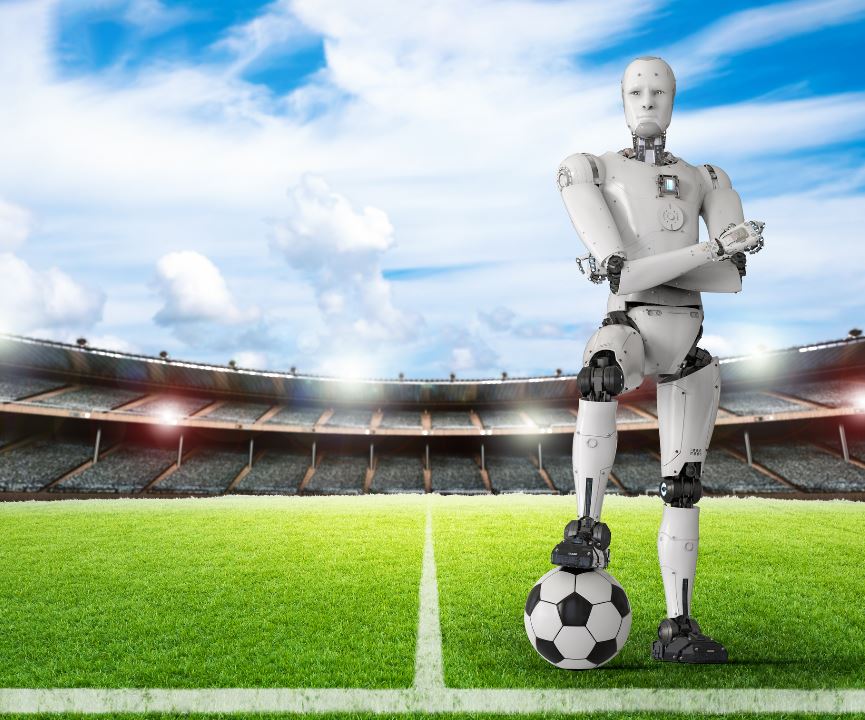 Effective team strategies and joint decision-making processes are fundamental in modern robotic applications, where multiple units have to cooperate to achieve a common goal. The research community in artificial intelligence and robotics has launched robotic competitions to promote research and validate new approaches, by providing robust benchmarks to evaluate all the components of a multiagent system—ranging from hardware to high-level strategy learning. Among these competitions RoboCup has a prominent role, running one of the first worldwide multirobot competition (in the late 1990s), challenging researchers to develop robotic systems able to compete in the game of soccer. Robotic soccer teams are complex multirobot systems, where each unit shows individual skills, and solid teamwork by exchanging information about their local perceptions and intentions. In this survey, we dive into the techniques developed within the RoboCup framework by analyzing and commenting on them in detail. Read More Effective team strategies and joint decision-making processes are fundamental in modern robotic applications, where multiple units have to cooperate to achieve a common goal. The research community in artificial intelligence and robotics has launched robotic competitions to promote research and validate new approaches, by providing robust benchmarks to evaluate all the components of a multiagent system—ranging from hardware to high-level strategy learning. Among these competitions RoboCup has a prominent role, running one of the first worldwide multirobot competition (in the late 1990s), challenging researchers to develop robotic systems able to compete in the game of soccer. Robotic soccer teams are complex multirobot systems, where each unit shows individual skills, and solid teamwork by exchanging information about their local perceptions and intentions. In this survey, we dive into the techniques developed within the RoboCup framework by analyzing and commenting on them in detail. Read More
IEEE Transactions on Games, December 2021
|
| |
|
| |
Optimal Synchronization of Unidirectionally Coupled FO Chaotic Electromechanical Devices With the Hierarchical Neural Network
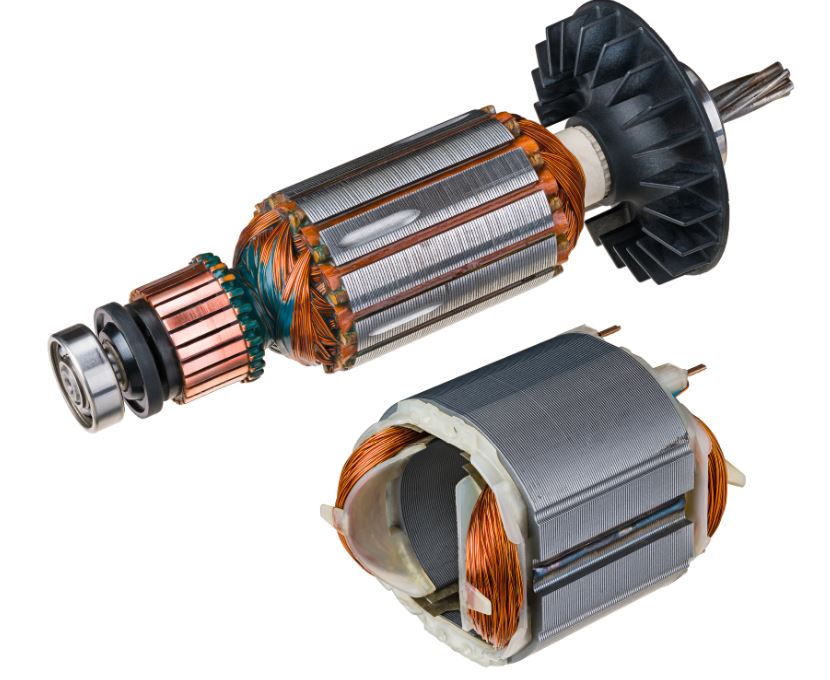 This article solves the problem of optimal synchronization, which is important but challenging for coupled fractional-order (FO) chaotic electromechanical devices composed of mechanical and electrical oscillators and electromagnetic filed by using a hierarchical neural network structure. The synchronization model of the FO electromechanical devices with capacitive and resistive couplings is built, and the phase diagrams reveal that the dynamic properties are closely related to sets of physical parameters, coupling coefficients, and FOs. To force the slave system to move from its original orbits to the orbits of the master system, an optimal synchronization policy, which includes an adaptive neural feedforward policy and an optimal neural feedback policy, is proposed. The feedforward controller is developed in the framework of FO backstepping integrated with the hierarchical neural network to estimate unknown functions of dynamic system in which the mentioned network has the formula transformation and hierarchical form to reduce the numbers of weights and membership functions. Read more This article solves the problem of optimal synchronization, which is important but challenging for coupled fractional-order (FO) chaotic electromechanical devices composed of mechanical and electrical oscillators and electromagnetic filed by using a hierarchical neural network structure. The synchronization model of the FO electromechanical devices with capacitive and resistive couplings is built, and the phase diagrams reveal that the dynamic properties are closely related to sets of physical parameters, coupling coefficients, and FOs. To force the slave system to move from its original orbits to the orbits of the master system, an optimal synchronization policy, which includes an adaptive neural feedforward policy and an optimal neural feedback policy, is proposed. The feedforward controller is developed in the framework of FO backstepping integrated with the hierarchical neural network to estimate unknown functions of dynamic system in which the mentioned network has the formula transformation and hierarchical form to reduce the numbers of weights and membership functions. Read more
Transactions on Neural Networks and Learning Systems, March 2022
|
| |
|
| |
How to Vary the Input Space of a T–S Fuzzy Model: A TP Model Transformation-Based Approach
 The motivation behind 15 years of continuous development within the topic of the tensor product (TP) model transformation is that the greater the number of parameters or components of the Takagi–Sugeno (T–S) fuzzy model one can manipulate, the larger complexity reduction or control optimization one can achieve. This article proposes a radically new type of extension to the TP model transformation. While earlier variants of the TP model transformation focused on how the antecedent—consequent fuzzy set system of a given T–S fuzzy model could be varied, this article, in contrast, focuses on how the number of inputs to a given T–S fuzzy model can be manipulated. The proposed extension is capable of changing the number of inputs or transforming the nonlinearity between the fuzzy rules and the input dimensions. This article provides two examples to show how the proposed extension can be used in a routine-like fashion. Read more The motivation behind 15 years of continuous development within the topic of the tensor product (TP) model transformation is that the greater the number of parameters or components of the Takagi–Sugeno (T–S) fuzzy model one can manipulate, the larger complexity reduction or control optimization one can achieve. This article proposes a radically new type of extension to the TP model transformation. While earlier variants of the TP model transformation focused on how the antecedent—consequent fuzzy set system of a given T–S fuzzy model could be varied, this article, in contrast, focuses on how the number of inputs to a given T–S fuzzy model can be manipulated. The proposed extension is capable of changing the number of inputs or transforming the nonlinearity between the fuzzy rules and the input dimensions. This article provides two examples to show how the proposed extension can be used in a routine-like fashion. Read more
IEEE Transactions on Fuzzy Systems, February 2022
|
| |
|
| |
Meet: Leandro Minku, Chair of the Conference Activities and Communications Subcommittee and Education Portal Subcommittee

What is your title, and place of work? ( or Technical Field of Research)?
I am an Associate Professor at the University of Birmingham, UK. My research interests include data stream learning, online learning, class imbalance learning, ensembles of learning machines, dynamic optimisation, and applications of computational intelligence to software engineering.
How long have you been a member of CIS and what was the reason you chose to join IEEE CIS?
I have been a member of CIS for 9 years. I first joined CIS because I was excited about the opportunities of interaction with other members of the society and keen to play an active volunteering role in its committees.
What Computational Intelligence society committee do you serve?
I am currently a member of the Conferences Committee and of the Education Committee. In the past, I have also been a member of the Member Activities Committee. Prior to my current roles, I have taken various other roles including chair of the Webinars Subcommittee, chair of the Social Media Subcommittee, Vice-Chair of the Young Professional Subcommittee, Vice-Chair of the Students Subcommittee and Editor of the CIS Newsletter.
What have you learned from your experience and how has it helped you professionally?
Being an active member of the CIS has led to great opportunities of networking. I was able to meet other members of the Society to discuss various topics, including research and community citizenship. I have gained leadership experience by organising various events. There are also many role models in the Society, which have been a great source of inspiration for my academic career. Being able to interact with them has positively influenced me on setting my goals.
What has been the most fun/rewarding thing about being a volunteer for the IEEE Computational Intelligence Society? What have you enjoyed the most?
The most rewarding experience has been to support other members of the Society in order for them to learn more about computational intelligence, whereas the most fun has been traveling to meet CIS colleagues at events on different countries. I have thoroughly enjoyed all the discussions that I have had with other CIS members.
Tell us something about you that we don't know.
I have practiced Iaido (the art of the Japanese sword) for several years and reached 3rd dan level. I look forward to being able to resume training when I move back to a city where there is an Iaido dojo available!
|
| |
|
| |
|
|
How to Introduce Computational Intelligence into a Business
|
Date: Tuesday, 26 April 2022
Time: 10:00 AM - 11:00 AM EDT
|
|
|
Recently adopting and successfully using Computational Intelligence capabilities has become a requirement for competitive business advantage. One of the biggest challenges in accomplishing this goal is helping the academics and the critical business decision-makers to recognize the value creation potential of Computational Intelligence and start exploring it. The webinar will assist them in achieving this objective by giving answers to the three key questions any business is asking and expecting answers to before deciding to allocate resources for Computational Intelligence: Read more
|
| |
|
|
|
|
|
| |
|
|
| |
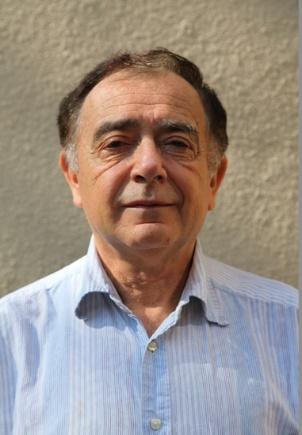 |
Dr Arthur Kordon
|
|
|
|
Dr. Kordon is a CEO of Kordon Consulting LLC and an internationally recognized expert in applying Computational Intelligence to the industry. His clients include large corporations and consulting companies in the United States, Japan, South Korea, Germany, and Belgium.
|
| |
|
|
| |
|
|
| |
|
|
Federated Learning: Balancing the Thin Line Between Data Intelligence and Privacy
|
Date: Wednesday, 4 May 2022
Time: 10:00 AM - 11:00 AM EDT
|
|
|
Federated learning holds great promise in learning from fragmented sensitive data and has revolutionized how machine learning models are trained. This talk provides a systematic overview and detailed taxonomy of federated learning. We investigate the existing security challenges in federated learning and provide a comprehensive overview of established defense techniques for data poisoning, inference at- tacks, and model poisoning attacks. The work also presents an overview of current training challenges for federated learning, focusing on handling non-i.i.d. data, high dimensionality issues, heterogeneous architecture, and discusses several solutions for the associated challenges. Read more
|
| |
|
|
|
|
|
| |
|
|
| |
 |
Dr Sherin Mary Mathews
|
|
|
|
Dr. Sherin Mathews is a Principal AI Research Scientist within the Chief Digital Office Innovation team at US Bank and is responsible for driving innovative solutions on the intersection of AI and financial services and redefining finance with AI solutions.
|
| |
|
|
| |
|
|
| |
CI & AI-FML Machine Learning Competition @ IEEE WCCI 2022
CI & AI-FML Machine Learning Competition for
Human and Smart Machine Co-Learning on Real-World Applications
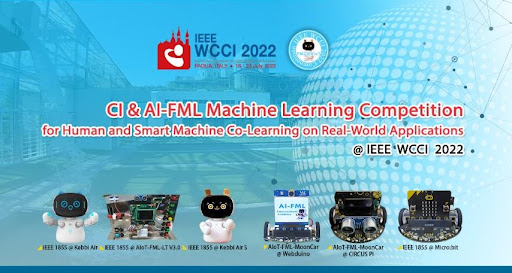
Organizers:
Chang-Shing Lee, Yusuke Nojima, Giovanni Acampora Marek Reformat, Naoyuki Kubota, Ryosuke Saga, Jose Manuel Soto Hidalgo, and Shen-Chien Chen
Supported by Task Forces on Competitions of IEEE CIS Fuzzy Systems Technical Committee
Posted by Chang-Shing Lee ([email protected])
Competition Website @ IEEE WCCI 2022
https://wcci2022.org/accepted-competitions/
http://oase.nutn.edu.tw/wcci2022-fmlcompetition/overview/
I. Scope and Topics
Computational Intelligence (CI), which includes fuzzy logic (FL), neural network (NN), and evolutionary computation (EC), is an imperative branch of artificial intelligence (AI). As a core technology of AI, it plays a vital role in developing intelligent systems, such as games and game engines, neural-based systems including a variety of deep network models, evolutionary-based optimization methods, and advanced cognitive techniques. The main contents of this competition proposal focused on the CI & AI-FML machine learning for human and smart machine co-learning on AIoT applications or real-world applications to encourage elementary-school students, high-school students, or undergraduate students to join the competition. This competition is supported by 2021 IEEE CIS High School Outreach Subcommittee, Task Forces on Competitions of IEEE CIS Fuzzy Systems Technical Committee, Task Forces on Web Intelligence of IEEE CIS Fuzzy Systems Technical Committee, Task Forces on Fuzzy System Software of IEEE CIS Fuzzy Systems Technical Committee, KWS research center of National University of Tainan, Taiwan, and CcS research center of Tokyo Metropolitan University, Japan.
II. Submission Instructions and Deadline
The participants are invited to submit their results via the competition website.
Submissions must be received before 30 June 2022, 23:59 (GMT).
|
| |
|
| |
2022 Graduate Student Research Grants: Call for Applications
The IEEE Computational Intelligence Society (CIS) funds scholarships for deserving undergraduate, graduate and PhD students who need financial support to carry out their research during an academic break period. The primary intent of these scholarships is to cover the expenses related to a visit to another university, institute, or research agency for collaboration with an identified researcher in the field of interest of the applicant. Funds can be used to cover travel expenses as well as certain living expenses (such as housing). The field of interest of applicants is open but should be connected with an identifiable component of the CIS (neural networks, fuzzy systems, or evolutionary computation). The call for the next round of applications will be announced soon and will have a deadline for submission of 22 April 2022.
|
| |
|
| |
 Editor Bing Xue
Victoria University of Wellington, New Zealand
Editor Bing Xue
Victoria University of Wellington, New Zealand
Email: [email protected]
|
| |
|
| |
{{my.Comm Preferences:default=edit me}}
|
| |
|
|
|